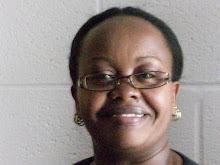A
lot of noise is currently being made on the blog sphere and elsewhere about CCK
shutting down six broadcast transmitters belonging to Royal
Media Services (RMS), and the fact that the owner is being targeted for
supporting one of the main political parties in Kenya namely the Coalition for Reforms and Democracy (CORD) .
However,it is important to understand that CCK “is the municipal government body responsible for the
implementation of the international obligations that the Republic of Kenya has
to the International Telecommunication Union (“the ITU”), a specialized UN
agency in the field of information and communication technology and to which
Kenya is a member.”
CCK is also the regulatory authority for the
communications sector in Kenya with responsibilities in telecommunications,
broadcasting, electronic transactions, and postal services. It is charged with
the responsibility of managing the country’s numbering and frequency spectrum
resources.
It is in my opinion that CCK has taken the
right direction and should not be cowed by all the noise whatsoever. The law
must be enforced regardless of the timing. An illegality is an illegality.
Kindly let us not politicize the matter. Enforcement of this judgment
does not in any way relate to SK supporting CORD. This should be seen as a pure
enforcement of a broadcast requirement.
Broadcast
licences have conditions and CCK does warn against their breaching.
For example CCK is usually clear on power of transmitter, the radius of
broadcast, the equipment that is approved etc. If for example you go beyond
that radius, or use a more powerful transmitter and therefore interfere with
other stations' signals, you breach the law and CCK has to come in. Further, in
this case, RMS was given sufficient time to put in corrective measures.
This
court case between RMS and CCK has been going on for a while. Please read:
http://kenyalaw.org/CaseSearch/view_preview1.php?link=70542457891338696266282
Just
to highlight a few things:
CCK
issued a public notice on May 17, 2012 where it warned of "UNAUTHORISED USE OF BROADCAST FREQUENCIES" in the Daily Nation, and
reminded "the licensed
frequency users that all radio frequency transmitters must be operated under a
valid licence whose conditions must be adhered to. In accordance with
the Kenya Information and
Communications Act, Cap 411A, operation of radio services without a licence is an offence that
attracts a fine of Kshs.5 million and imprisonment for a term not exceeding
three years or both"
Those operating illegal licences were given a
30 day notice to surrender the frequencies, failure to which CCK warned that it
would take action. Several radio stations among them Neutral Digital
Broadcasters Limited, Trans World Radio – Kenya, Real-Time Solutions Limited,
Imani Radio & TV Ministries, Capital FM and other stations duly complied
with the direction and informed CCK that they had installed band filters to
minimise harmful interference.
CCK wrote to RMS a “Notice of Violation” letter dated 3rd August
2012, where several non conformities were noted. CCK was concerned
that that despite having asked RMS to correct the anomalies, no action had
been taken. CCK further asked RMS to take corrective measures within 30 days
from the date of the letter to ensure that it installs "the band pass
filters, obtain Type Approval for its transmitters, shut down unauthorised
stations and relocate to the designated broadcast sites". RMS on different
dates received more letters from CCK on unauthorized use
frequencies.
Needless to say, RMS did not comply and instead
went to court (it enjoined the AG and the Minister of Information) arguing
that it was entitled to continued use of the frequencies since the body
envisaged by Article 34 (5) of Kenya's 2010 Constitution for licensing and issuing broadcaster’s frequencies was
yet to be established. Further, RMS argued that the letters and Notice issued
by CCK contravened/violated its fundamental rights and freedoms under Articles
34, 40, 47 and 48 of Kenya's Constitution and requested the court.
Additionally, RMS wanted (14) (g) A permanent injunction restraining the 2nd (Minister) and
3rd (CCK) respondents
or any of them from cancelling, stopping, suspending, restricting or in any way
whatsoever interfering with the petitioner’s licences frequencies, broadcasting
spectrums and broadcasting services.
The
courts (Justice Majanja) already re-emphasized the regulatory role of CCK in
issuance of licences and frequencies on 18th January 2013.
This
is the summary of the ruling.
Conclusion and disposition
62. In summary, I find and hold that the CCK is
entitled to exercise regulatory authority over broadcasting and other
electronic media pursuant to the Kenya Information and
Communications Act until such time as Parliament establishes the
body contemplated under Article 34(5) of the
Constitution. Thus prayers (a), (b) and (c) of the amended petition are
dismissed.
63. I find and hold that the letters dated 6th March
2012, 3rd August 2012, the Notice of Violation dated 3rd August
2012 and the notice issued in the Daily Nation of 17th May 2012
are not in contravention of the petitioners rights protected by Articles
34, 40 and 47 of the Constitution as they
are in the nature of notices that afford RMS to show cause why regulatory
action should not be taken against it. As a consequence, I reject prayers (d),
and (e) of the amended petition.
64. The grant of prayers (f) and (g) of the amended
petition would have the effect of excluding RMS from statutory regulations. As
I have held, I do not think regulatory action, which entitles the RMS to due
process is a violation of the Constitution nor does such action interfere with
its fundamental rights and freedoms of the petitioner.
65. In view of the findings I have made, the
petition is dismissed. As this is a matter for the enforcement of fundamental
rights and freedoms I decline to make an award for costs.
66. I thank counsel who appeared in this matter
for their detailed submissions.
DATED and DELIVERED at NAIROBI this
18th day of January 2013.
